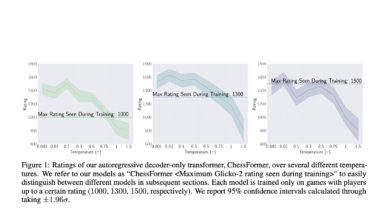Generative AI in Business Market is set to grow to USD 20.1 billion by 2032 | by Hazel | Jun, 2024

Generative AI in Business Market: An In-Depth Analysis
The Generative AI in Business Market is projected to grow from USD 1.2 billion in 2022 to USD 20.1 billion by 2032, at a CAGR of 33.5% during the forecast period. This explosive growth is driven by significant advancements and diverse applications of Generative AI, which leverages data to create new and unique content that mimics human creativity.
Key Takeaways
- The Generative AI in Business Market is projected to grow significantly, reaching USD 20.1 billion by 2032.
- Key drivers include automation, superior data analytics, individualized customer interactions, and supply chain efficiency.
- Restraints involve job displacement concerns, employee resistance, integration challenges, and ethical considerations.
- The software segment and text models dominate the market due to their wide applications and demand for personalized content.
- North America leads the market, supported by technological infrastructure, top educational institutions, and a vibrant startup ecosystem.
Explore the Report Format with Our Sample PDF Download at https://marketresearch.biz/report/generative-ai-in-business-market/request-sample/
Market Growth
The rapid expansion of the Generative AI in Business Market is propelled by its ability to innovate across various industries. From producing realistic images and videos to composing music and writing literature, Generative AI is redefining the boundaries of creativity and operational efficiency. Key sectors such as advertising, entertainment, healthcare, and e-commerce are integrating Generative AI to enhance customer experiences and streamline operations.
Factors Affecting Market Growth
Driving Factors
Automation of Operations: Generative AI enhances automation by analyzing large datasets to generate insights in real-time, allowing businesses to optimize complex decision-making processes.
Superior Data Analytics: By harnessing Generative AI, businesses can discover patterns and trends in big data, facilitating data-driven decisions and strategic optimizations.
Individualized Customer Interactions: Generative AI enables personalized marketing, customer recommendations, and targeted advertising, enhancing customer satisfaction and loyalty.
Supply Chain Efficiency: AI-driven predictive models help optimize inventory management, demand forecasting, and logistics, resulting in cost savings and improved customer satisfaction.
Restraining Factors
Job Displacement Concerns: Automation of repetitive tasks by AI may lead to fears of job loss among employees, although it also creates opportunities for more strategic roles.
Resistance from Employees: Employees might resist the adoption of AI due to concerns about job security and the unfamiliarity with new technologies.
Integration Challenges: Incorporating Generative AI into existing systems can be complex and may face compatibility issues with legacy systems.
Ethical Considerations: Transparency, accountability, and bias protection are critical for building trust in AI technologies. Establishing clear ethical guidelines is essential.
Segmentation Analysis
Component Analysis
The software segment dominates the Generative AI in Business Market. This includes applications that enable businesses to generate creative content, make informed decisions, and optimize operations. The versatility of software solutions makes them widely applicable across different industries, from designing personalized experiences to automating processes.
System Type Analysis
The text model segment, which generates human-like text, is the leading system type in the market. Text models automate content creation, enhance customer engagement, and improve communication. The growing demand for quick and relevant content makes text models increasingly popular.
Key Market Segments
By Component:
- Service
- Software
- By System Type:
Text Models (GPT-3, LaMDA, LLaMA)
Multimodal Models (GPT-4, DALL-E, Stable Diffusion, Progen)
By End-Use:
BFSI
Manufacturing
Customer Support
Content Writing
IT & Telecommunication
Healthcare
Automotive & Transportation
Retail Industry
Other End Uses
Key Players Analysis
OpenAI: Leading in natural language processing and deep learning applications.
Microsoft Corporation: With products like Azure Bot Service, Microsoft enhances customer support automation.
Google LLC: Pioneering AI advancements in image and speech recognition.
IBM Corporation: Watson AI platform supports sophisticated chatbots and data analytics.
Adobe Inc.: Integrating Generative AI in creative tools for content creation.
Synthesis AI, Paige.AI, Rephrase.ai, and others: Innovating across various applications of Generative AI in healthcare, personalized content, and more.
Regional Analysis
North America leads the Generative AI in Business Market, driven by significant technological infrastructure, top-tier educational institutions, and a robust startup ecosystem. Silicon Valley serves as a hub of innovation, fostering advancements in AI research and development.
Market Drivers
Technological Infrastructure: Access to high-performance computing and cutting-edge resources.
Educational Institutions: Universities like Stanford and MIT contribute to groundbreaking AI research.
Startup Ecosystem: Cities like San Francisco and New York support AI startups with venture capital and accelerators.
Market Restraints
Integration Challenges: Compatibility with legacy systems can hinder the adoption of new AI technologies.
Ethical Considerations: Ensuring AI applications are transparent, accountable, and free from bias.
Growth Opportunities
Collaboration of AI and Personnel
Integrating AI with human expertise maximizes the potential of Generative AI, allowing businesses to derive valuable insights from data and make well-informed decisions.
Intelligent Virtual Assistants
AI-powered virtual assistants, such as chatbots and voice assistants, transform customer interactions by providing real-time, personalized support.
Expansion in Emerging Markets
As technology adoption increases in emerging markets, Generative AI offers numerous opportunities for optimizing operations and gaining a competitive edge.
Implementation of the Internet of Things (IoT)
Combining Generative AI with IoT data enables businesses to identify patterns, predict outcomes, and optimize processes, enhancing efficiency and reducing downtime.
Gain Immediate Access: Secure Your Copy of This Premium Research Report Today! https://marketresearch.biz/purchase-report/?report_id=38942
Latest Trends
AI-Powered Chatbots for Customer Support
AI chatbots provide quick, personalized responses to customer inquiries, improving satisfaction and operational efficiency.
Demand Projection and Inventory Control
Generative AI enhances demand forecasting and inventory management, optimizing supply chain operations.
Feedback Analysis with NLP
Natural Language Processing (NLP) powered by Generative AI automates the analysis of customer feedback, extracting actionable insights.
AI-Powered Recommendations
Personalized recommendations driven by AI algorithms increase customer engagement, conversion rates, and loyalty.
FAQ
What is Generative AI?
Generative AI refers to algorithms that learn from data to create new, unique content that mimics human creativity.
How does Generative AI benefit businesses?
Generative AI helps businesses innovate, automate processes, enhance customer experiences, and optimize operations.
What are the main drivers of the Generative AI in Business Market?
Automation, superior data analytics, personalized customer interactions, and supply chain efficiency drive market growth.
What are the challenges in adopting Generative AI?
Challenges include job displacement concerns, employee resistance, integration issues, and ethical considerations.
Which region dominates the Generative AI in Business Market?
North America leads due to its advanced technological infrastructure, leading educational institutions, and robust startup ecosystem.
The Generative AI in Business Market is poised for remarkable growth, transforming industries and redefining the possibilities of AI-driven innovation. By understanding the market dynamics, businesses can strategically leverage Generative AI to achieve operational excellence and competitive advantage.



